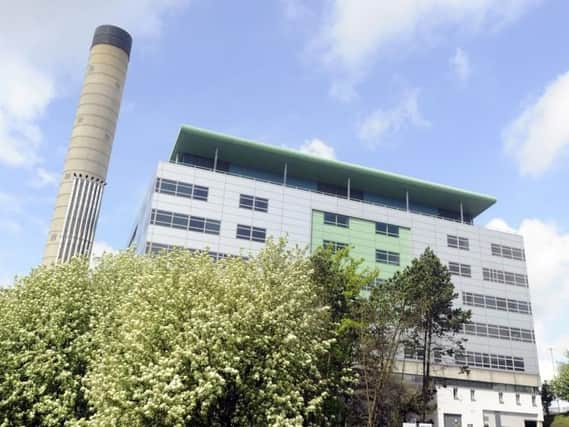Two premature babies die after infection outbreak in Glasgow hospital


The Staphylococcus aureus infection, which is spread through physical contact, has affected three "extremely premature" babies in the neonatal unit at the Princess Royal Maternity Hospital. The infection is carried by one in four people but can be fatal for vulnerable groups when it enters the bloodstream. Doctors do not yet know how the infection was passed on to the infants.
NHS Glasgow has set up an Incident Management Team to investigate the outbreak, which it said was a "contributing cause" in the deaths of both babies. The third premature baby who tested positive for Staphylococcus aureus required treatment for the bacterium and is in a stable condition.
Advertisement
Hide AdAdvertisement
Hide AdThis comes just days after it emerged that Scottish prosecutors are investigating the deaths of two patients, a 10-year-old boy and a 73-year-old woman, who contracted an infection connected to pigeon droppings at the city's Queen Elizabeth University hospital over the past two months.
The first cases of Staphylococcus aureus came to light on Thursday last week and investigations have since revealed that the bug contracted by each baby was exactly the same strain.
Dr Barbara Weinhardt, infection control doctor, said: "Our thoughts are with the families affected. Results have today confirmed that the three cases of Staphylococcus aureus are linked and our investigations continue into how they are linked.
“Staphylococcus aureus is a bacterium that is found on the skin and in the nasal passage of around one in four people and only causes infection when it enters the body. In cases where people are vulnerable to infection, it can cause serious infection. We have taken a number of control measures in the unit, including a deep clean, isolation and barrier nursing, safety briefs to all staff and infection control advice to all visitors.”
NHS Greater Glasgow and Clyde said it closely monitors any blood stream infections in this vulnerable group of patients.
Dr Alan Mathers, chief of Medicine, Women’s and Children’s Service, added: “The national guidance sets out that an investigation should be triggered when two or more cases of the same type of bacteria are found. In this case, this was triggered on 24th January and an Incident Management Team meeting (IMT) was convened.
“The IMT began their investigations into possible linkages between the three cases and sent samples for testing. Whilst these results were awaited, we spoke to the families affected, together with the parents on the unit and staff, to let them know of our investigations. The results that have come back today have confirmed links between the three cases."
He added: “Our infection control team continues to work closely with clinical colleagues and domestic staff to manage the situation and take all necessary steps to maintain patient safety.”
Advertisement
Hide AdAdvertisement
Hide AdTwo years ago, inspectors found rusty and damaged equipment in an emergency birthing room and stained mattresses in incubators at the Princess Royal. Staff from the Healthcare Environment Inspectorate (HEI) watchdog who held an unannounced inspection discovered an emergency birthing room was being used to store equipment, was dusty and the birthing bed frame and stirrups were “rusty” while a mattress cover in equipment used to resuscitate newborns was “damaged”.